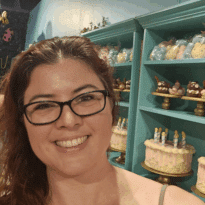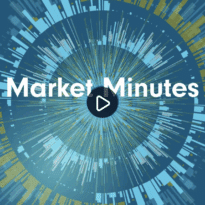After a decade of favourable market conditions, rising interest rates have weighed heavily on private equity firms over fears that higher costs would impact cash flows and returns. Against this backdrop, Fidelity portfolio managers Sam Morse and Marcel Stötzel reflect on their private equity holdings and outline why they held to their convictions and remain confident that the key long-term drivers are still intact and would remain so in the face of short-term uncertainty.
As long-term investors with combined investment experience of over 45 years, we are no strangers to things coming into and out of fashion. For market participants who have only been in the investment industry since the Global Financial crisis, it may have felt like near zero interest rates were the norm and cheap money would be available to companies and influence their behaviour forever. The dramatic interest rate hiking cycle we have been in since 2021 has clearly busted this myth.
One industry that had benefited from the low interest rate environment was private equity, given its emphasis on using leverage to increase expected returns. As a result, money flowed into private equity and the share prices of listed private equity names appreciated. However, as interest rates started to rise, the market became concerned that private equity companies had failed to anticipate the 400-500bps increases in rates and this could be an issue for some of their underlying assets as having to pay a higher interest cost would hit cash flows and investment returns. Additionally, there were concerns that the funding / fund raising environment would dry up just at the time that private equity players were unable to exit past investments.
Staying invested
As holders of several private equity names in our portfolios including Partners Group and 3i, this market nervousness about the business models and future of the industry saw a disappointing period for the relative returns generated from those holdings in 2022 and the early part of 2023. We shared the market’s concerns but, looking on a bottom-up stock picking basis, we felt strongly that the long-term impact was overstated. Instead, we felt that the key drivers of the stocks over the long term were still intact and would remain so in the event of any short-term wobbles.
Our patience and confidence in the underlying theses, which was based on due diligence work carried out alongside our analyst research team, meant that we stuck with our holdings through the period of them being unloved. Both Partners and 3i ended up being two of our big winners in 2023 and were both great examples of where we benefitted from focussing on bottom-up stock picking rather than top-down macro forecasts.
3i’s main asset is the Continental European discount retailer Action and there were worries it would be impacted by the cost-of-living squeeze and looming recession. While we acknowledged that sales might be impacted in the short-term, we did not believe that this would be enough to change the strong long-term outlook. In the end, the short term held up well too as the squeeze on disposable income encouraged new customers to seek the bargains on offer in Action stores.
For Partners what mattered most was their fund-raising ability as their earnings are heavily skewed towards management fees. While this has been impacted in the short term, we did not feel that this changed the excellent long term fundraising potential of the company.
Partners Group enjoyed a big re-rating as investors’ worst fears, regarding the economy and a knock-on impact on private equity valuations, receded and were replaced by a recognition of the resilience of the group, in terms of both valuations and fund-raising, given it is spread across different private asset classes and different customer groups respectively.
Holding our nerve
It is very difficult to watch portfolio holdings go down when they are swept up in a turning tide of investor sentiment and to keep our nerve. However, by going back to our original reasons for owning the shares – which we deliberately keep to a simple ‘three reasons sheet’ – we were able to act as long-term investors and not like traders. Returning to and testing our original theses on stocks and keeping a close eye on dividend growth as a signal of management’s confidence in the future health of the business is what we do consistently and gives us comfort that our patient approach will pay off.
Important information
This information is for investment professionals only and should not be relied upon by private investors. Past performance is not a reliable indicator of future returns. Investors should note that the views expressed may no longer be current and may have already been acted upon. Changes in currency exchange rates may affect the value of an investment in overseas markets. The Fidelity European Fund and Fidelity European Trust PLC can use financial derivative instruments for investment purposes, which may expose them to a higher degree of risk and can cause investments to experience larger than average price fluctuations. The shares in the investment trust are listed on the London Stock Exchange and their price is affected by supply and demand. The investment trust can gain additional exposure to the market, known as gearing, potentially increasing volatility. Changes in currency exchange rates may affect the value of an investment in overseas markets. Reference to specific securities should not be construed as a recommendation to buy or sell these securities and is included for the purposes of illustration only. Issued by FIL Pensions Management, authorised and regulated by the Financial Conduct Authority and Financial Administration Services Limited, authorised and regulated by the Financial Conduct Authority. Fidelity International, the Fidelity International logo and F symbol are trademarks of FIL Limited.




































